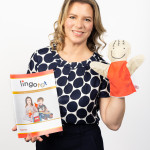
Lingotot South Dublin Centre
Lingotot South Dublin Centre
Why bother exposing my child to a second language early on in life ?
Posted: Thu, Aug 17, 2023 1:50 PM
Learning a second language at a young age has been widely recognized as beneficial for various cognitive, academic, social, and cultural reasons. Here are some key points to consider:
Enhanced Cognitive Abilities: Young children are naturally more adaptable and capable of absorbing new information, including language skills. Learning a second language can help develop cognitive skills such as problem-solving, critical thinking, and multitasking. Studies suggest that bilingual individuals tend to have better memory and executive function skills.
Improved Linguistic Skills: Learning a second language at a young age exposes children to different linguistic structures and patterns. This can lead to a deeper understanding of grammar, vocabulary, and language nuances. It can also enhance their overall language development, making it easier for them to learn additional languages in the future.
Cultural Sensitivity and Global Awareness: Language is closely tied to culture. Learning a second language exposes children to different cultures, traditions, and perspectives. This fosters cultural sensitivity, empathy, and a broader global awareness, which are crucial skills in our interconnected world.
Increased Career Opportunities: In a globalized economy, knowing multiple languages is a valuable asset. Bilingual individuals often have an advantage in the job market, as they can communicate effectively with a wider range of people and tap into international job opportunities.
Easier Language Acquisition: Young brains are more adaptable to learning new languages. During early childhood, the brain is in a critical period for language acquisition, and exposure to multiple languages during this time can result in more authentic accents and fluent speech.
Enhanced Problem-Solving Skills: Learning a second language requires navigating different linguistic structures, which can improve problem-solving skills by encouraging creative thinking and adaptability.
Positive Impact on Academic Performance: Research indicates that students who learn a second language tend to perform better in standardized tests, including those related to reading, math, and vocabulary. The cognitive benefits of bilingualism extend to academic subjects beyond language learning.
Increased Cognitive Flexibility: Bilingual individuals often display higher levels of cognitive flexibility, which is the ability to switch between tasks, think abstractly, and adapt to new situations. This cognitive skill has implications not only for language but also for various areas of learning and problem-solving.
Early Start for Fluency: Learning a language earlier in life provides more time for practice and exposure. This can lead to a higher level of fluency and proficiency compared to individuals who start learning a language later in life.
Stronger Sense of Identity: Being bilingual can contribute to an individual's sense of identity, connecting them to their heritage and allowing them to communicate with extended family members or community members who may not speak their primary language.
In conclusion, the benefits of learning a second language at a young age are numerous and varied. It not only provides cognitive advantages but also nurtures cultural sensitivity, global awareness, and improved communication skills that can positively impact various aspects of a person's life.
Contact South Dublin
Tel: 01 442 8689
Email: southdublin@lingotot.com
Twitter @LingototD
Instagram @lingotot.ie


